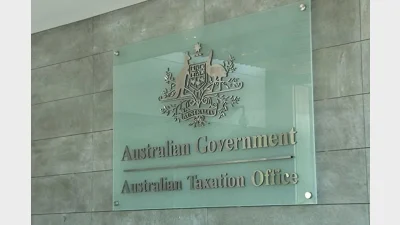(August-2002) Getting wise to super
While Australia’s mandatory super system has won global acclaim for its comprehensive product disclosure regime, global experience suggests that Australian employees and their families may lack the educational resources needed to interpret and utilise product information to make informed superannuation decisions.
At risk is the long-term financial benefit of super to current and future generations, which won’t be fully realised unless governments and industry bodies collaborate now to develop comprehensive financial literacy programs.
Under achievement of financial objectives via superannuating may lead to unnecessary reliance on our tax payer-funded social security pension system which, by the Federal Government’s own admission, will struggle to support the financial requirements of an ageing population within the next 30 years.
Whether Australians like it or not, superannuation provides them with a stake in the increasingly diversified domestic and global investment markets.
Seizing on the community’s need for independent wealth creation to fund retirement incomes, the investment markets offer a vast, yet complex, choice of super funds and investment opportunities within these funds to select from. Yet, research indicates that just 34 per cent of Australia’s self-employed workforce effectively leverage our superannuation system despite the lucrative taxation incentives available to them.
Since 1994, governments and financial markets have successfully collaborated to strengthen public confidence in these wealth creation vehicles by implementing comprehensive product disclosure laws, which mandate and prescribe disclosure of fees and charges and investment performance among other criteria.
Yet, while such regimes have ensured greater transparency of fees, charges and comparison of investment performance among super funds, there is clear global evidence that investors are drowning in a sea of regulation, terms and conditions and information overload.
Indeed, any further strengthening of investment product disclosure regimes by government must occur in consultation with investment industry bodies and the community to ensure investment information that is mandated can be used appropriately.
Global studies of community participation in long-term retirement savings programs clearly indicate an alarming lack of financial literacy among communities, resulting in uninformed investment decisions and unrealised long-term financial security.
Several short-term financial literacy programs, which would quickly address a distinct under-utilisation of investment markets by large segments of the workforce, are under consideration.
One example of a short-term literacy program is an information guide, written in simple English, that offers existing workers and retirees a basic understanding of financial markets, investment products and tips on how to access these vehicles.
Such a program would incorporate government-funded material in collaboration with investment product information prepared by trustees and fund managers. It is pleasing to see that the Federal Government, through a $28.7 million allocation to the Australian Taxation Office starting 2002/03, has already recognised the importance of financial literacy to the long-term effectiveness of its pro-choice superannuation agenda.
However, there is an urgent need for the Federal Government and investment industry bodies to develop long-term financial literacy programs that encourage smart investment and wealth creation initiatives, while ultimately reducing the burden on the public purse of providing centrally funded old age pensions.
For example, the UK has introduced co-ordinated financial literacy education programs as early as pre-school and continuing to tertiary levels.
While such groundbreaking innovation may not reach fruition for decades, it is imperative the Federal Government and investment bodies give due consideration to the ongoing results of such initiatives when strengthening future regulatory policy.
Clearly, the benefits of such foresight for investors, fund managers, financial markets and governments are obvious.
A more financially literate public will develop a greater capacity to process and analyse the increased amount and complexity of investment data, which our superannuation disclosure laws provide for, which in turn will ensure that point of sale investment materials have a more meaningful impact on long-term financial decision making.
— Jane Paskin is superannuation partner, Clayton Utz.
Recommended for you
The industry fund has called on ASX 300 companies to strengthen priorities around resilience, climate, and gender, while itself facing criticism over fossil fuels.
Industry fund HESTA has filed an appeal against an ATO decision on tax offsets from franking credits, with the Australian Retirement Trust set to file a similar claim soon.
The latest superannuation performance test results have shown improvements, but four in 10 trustee-directed products continue to exhibit “significant investment underperformance”, warns APRA.
The corporate regulator has launched civil proceedings against Equity Trustees over its inclusion of the Shield Master Fund on super platforms it hosted, but other trustees could also be in the firing line.











